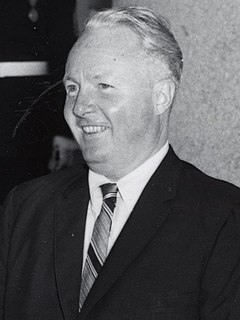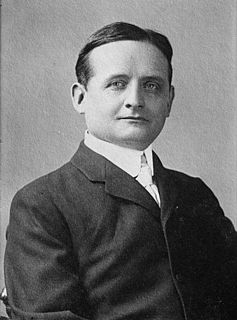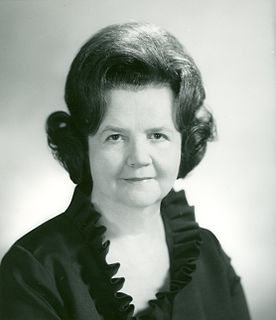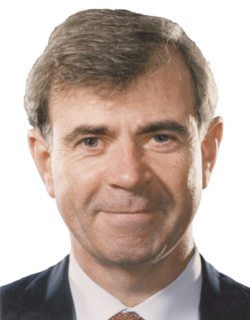
Kevin Hagan White was an American politician best known as the Mayor of Boston, an office he was first elected to at the age of 38, and which he held for four terms amounting to 16 years, from 1968 to 1984. He presided as mayor during racially turbulent years in the late 1960s and 1970s, and the start of desegregation of schools via court-ordered busing of school children in Boston. White won the mayoral office in the 1967 general election in a hard-fought campaign opposing the anti-busing and anti-desegregation Boston School Committee member Louise Day Hicks. He was earlier elected Massachusetts Secretary of the Commonwealth in 1960 at the age of 31, and resigned from that office after his election as Mayor.

William J. Day Boulevard, or Day Boulevard, is a coastal parkway in Boston, Massachusetts. Beginning at Morrissey Boulevard and Kosciuszko Circle at the northern extent of the Dorchester section of the city, it travels in a gently curving northeasterly direction 2.6 miles (4.2 km) through South Boston along beaches around the west and north shore of Dorchester Bay. It was named for William J. Day.

The Boston mayoral election of 1991 occurred on Tuesday, November 5, 1991, between Mayor Raymond Flynn and Edward J. Doherty, president of the Boston Teachers Union. Flynn was re-elected to his third term.

The Boston mayoral election of 1987 occurred on Tuesday, November 3, 1987, between Mayor Raymond Flynn and City Council member Joseph M. Tierney. Flynn was re-elected to his second term.

The Boston mayoral election of 1983 occurred on Tuesday, November 15, 1983, between City Councillor Raymond Flynn and former State Representative Mel King. Flynn was elected to his first term, and inaugurated on Monday, January 2, 1984.

The Boston mayoral election of 1979 occurred on Tuesday, November 6, 1979, between Mayor Kevin White and state senator Joseph F. Timilty. This was the second election in a row between White and Timilty. White once again defeated Timilty and was elected to a fourth term.
Joseph F. Timilty was an American politician.

The Boston mayoral election of 1975 occurred on Tuesday, November 4, 1975, between Mayor Kevin White and state senator Joseph F. Timilty. White was elected to a third term.

The Boston mayoral election of 1967 occurred on Tuesday, November 7, 1967, between Secretary of the Commonwealth Kevin White and Boston School Committee member Louise Day Hicks. White was elected to his first term, and inaugurated on Monday, January 1, 1968.

The Boston mayoral election of 1963 occurred on Tuesday, November 5, 1963, between Mayor of Boston John F. Collins and Boston City Council member Gabriel Piemonte. Collins was elected to his second term.

The Boston mayoral election of 1959 occurred on Tuesday, November 3, 1959, between former Boston City Council member John F. Collins and President of the Massachusetts Senate John E. Powers. Collins was elected to his first term, and was inaugurated on Monday, January 4, 1960.

The Boston mayoral election of 1955 occurred on Tuesday, November 8, 1955, between Mayor John B. Hynes and State Senator John E. Powers. Hynes was elected to his third term.
Stephen C. Davenport was an American lawyer, accountant, and politician who was a member of the Massachusetts Senate from 1965 to 1969 and the Massachusetts House of Representatives from 1961 to 1965. He was a candidate for Mayor of Boston in 1967. Prior to serving in the Massachusetts General Court, Davenport served as Assistant Corporation Counsel for the City of Boston from 1950 to 1961.
Gabriel Francis Piemonte was an American attorney and politician who was a member of the Massachusetts House of Representatives from 1947 to 1952 and the Boston City Council from 1952 to 1960, 1962 to 1964, 1966 to 1968, and 1970 to 1974. In 1952 and from 1970 to 1972 he was the Council President.
Julius Ansel was an American politician who was a member of the Boston City Council from 1948 to 1951, the Massachusetts House of Representatives from 1953 to 1955 and again from 1959 to 1965, and the Massachusetts Senate in 1965. He was an unsuccessful candidate for Mayor of Boston in 1963.

The Boston mayoral election of 1925 occurred on Tuesday, November 3, 1925. Malcolm Nichols, a former member of the Massachusetts House of Representatives and Massachusetts Senate, defeated nine other candidates to be elected mayor.

The Boston mayoral election of 1917 occurred on Tuesday, December 18, 1917. Andrew James Peters, Assistant Secretary of the Treasury, defeated incumbent Mayor of Boston James Michael Curley and two other candidates.

The Boston mayoral election of 1914 occurred on Tuesday, January 13, 1914. James Michael Curley, member of the United States House of Representatives, was elected Mayor of Boston for the first time, defeating Thomas J. Kenny, president of the Boston City Council.



















